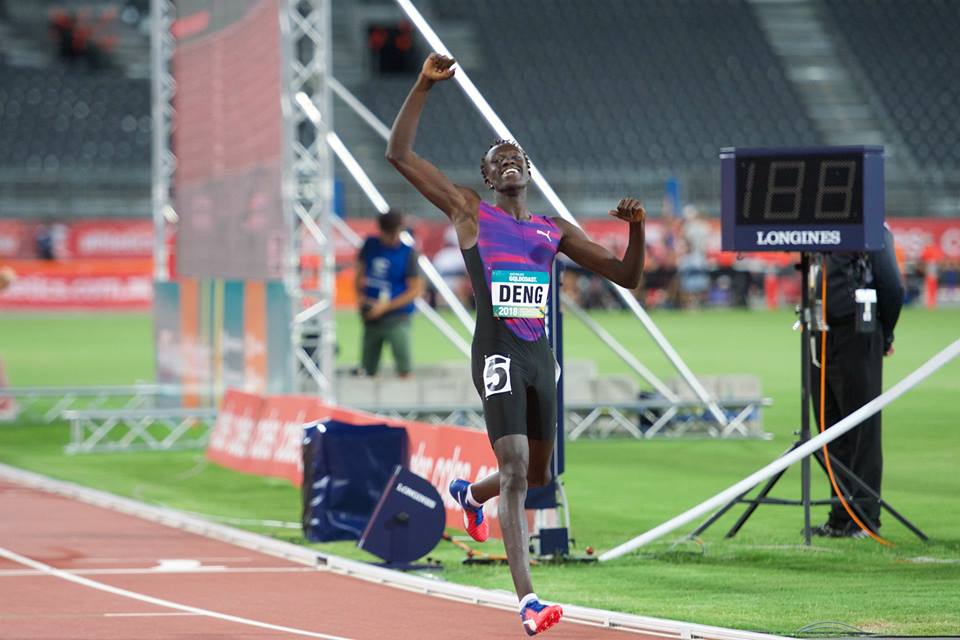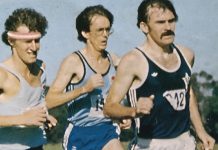Performances often tend to bunch up around a perceived barrier, the men’s four-minute mile being the most famous historical example.
As we see the increased number of performances approaching the barrier, there is a tendency to assume one athlete will inevitably crash through it. Let’s call it the clump theory.
Of course, the clump theory regularly makes chumps of us all. Just a few short years ago, as half-a-dozen men’s high jumpers cleared 2.40 metres in 2014, it seemed inevitable Javier Sotomayor’s long-standing world record of 2.45 was living on borrowed time.
We are all prone to thinking along those lines. I previewed the Shanghai Diamond League meeting based precisely on that premise. Last time I looked, Sotomayor’s record was still standing and just one man has cleared 2.40 or better since 2014, Mutaz Essa Barshim.
Barshim has done it each year, mind, so the record could still go any time he competes. It’s just that we’ve become a bit more circumspect about predicting it is gone the very next time he jumps.
All that notwithstanding, it’s been pleasing to see a build-up around some significant Australian middle-distance barriers in recent times. Linden Hall broke the Australian record for 1500 metres at the Prefontaine Classic, reviving hopes of a sub-four minute performance by an Australian woman.
A couple of days later in the Dutch city of Hengelo, Joseph Deng dipped under 1:45 when he ran 1:44.97 for 800 metres.
Both Hall and Deng are running in the Stockholm Diamond League meeting on Sunday (10 June). So, too, is Peter Bol. And Georgia Griffith, so impressive in both the 800 and 1500 at the Commonwealth Games, is racing over 800 at the Portland Track Festival in the US on Monday morning, AEST.
At the risk of turning out to be a chump, there is a clump of performers and performances around some pretty significant numbers in the middle-distance events. Deng is now within a couple of steps of the 1:44.40 national record shared by Ralph Doubell (in 1968) and Alex Rowe (2014). Bol, whose best is 1:45.21, is not too far back.
As already noted, Hall is approaching four minutes. No Australian woman has broken that barrier. Hall will be running in the city and the stadium where Sarah Jamieson set the previous Australian record 12 years ago. For Griffith, the aim is inevitably two minutes and Charlene Rendina’s national record 1:59.0 which dates back to 1976 (at some stage she might have a crack at a sub-4 1500, too).
When Ralph Doubell ran his 1:44.40 (ratified as a hand-time 1:44.3 under the Olympic rules back then), it brought him an Olympic and a share of the world record with legendary New Zealander Peter Snell. Time-wise, Australian men’s 800 metres has stood still since, while the world has moved on. It was 46 years before Alex Rowe equalled the record in a race in Belgium.
In all, just five Australians have ever run under 1:45. The other three are Jeff Riseley, the only man to have done it twice, with a best of 1:44.48. Peter Bourke won the national title in 1982 in 1:44.78 and went on to win the Commonwealth Games gold medal in Brisbane six months later the same year.
And now Deng with his 1:44.97. Riseley and Rowe are still active, but Deng, who turns 20 on 7 July, is the one with the best prospects of improvement.
The women’s 800 record has stood even longer. Rendina set it in winning the Victorian state title on the last day of February in 1976. Two minutes is almost as formidable a barrier. It is the 1:45 of Australian women’s 800: just five women have done it.
Tamsyn Lewis has come closest to Rendina’s time, with a 1:59.21 which she ran in Canberra in January, 2000. Marg Crowley ran 1:59.73 in 1996, the year she finished fifth in the Olympic 1500; Madeleine Pape, the ‘newest’ entrant on the list, ran 1:59.92 in 2008 and Judy Pollock1:59.93 in the Montreal Olympic semi-finals.
Now, with Brittany McGowan, Keely Small and Griffith all popping out fast times in the national titles and Commonwealth Games, we may be on the verge of a sixth sub-2 (and seventh, eighth, and so on).
Jenny Orr ran 4:08.06 in the heats of the 1500 at the Munich 1972 Olympics, the first time the distance was contested at an Olympic Games. For over 20 years, the record stood still before Kate Anderson sliced a second off early in 1996 and Crowley a further six seconds a few months later on the road to Atlanta.
First, Jamieson and now Hall have taken the record below 4:01. Four minutes, still a benchmark for the highest international class, is again within reach.
The history of our sport tells us over and over that progress is rarely predictable and, in any case, never follows straight lines. But there are grounds for optimism that 1:44, 1:59 and 4:00 could all be behind us by the end of 2018.
Australian middle-distance running is poised for a leap forward. Let’s hope someone can take it.
End
Cover photo: Joe Deng, Aussie Athletics Champs 800m B final 2018: Photo by Ewa Facioni

















